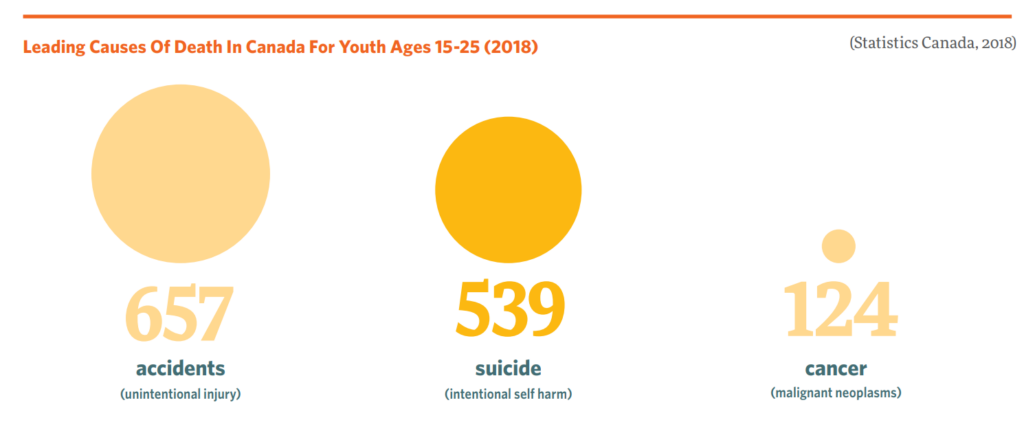If you are in distress, you can call or text 988 at any time. If it is an emergency, call 9-1-1 or go to your local emergency department.
- Fact sheets, Public Resources
Public Health and Suicide Fact Sheet
Suicide in Canada is an ongoing public health crisis. While it continues to be a high-ranking cause of death (which the COVID-19 pandemic may worsen), mental health and public health initiatives can help prevent it. What is public health? Defining levels of public health disease & injury Suicide as a public health emergency Public health initiatives can effectively prevent suicide if they are multi-faceted; for example, initiatives that affect society, smaller communities, as well as individual people and their relationships. Initiatives that boost people’s resilience and protect them from thoughts of suicide may involve direct support (e.g. crisis lines, the construction of bridge barriers) and indirect support (e.g. housing programs) (Gunnell et al., 2020)This resource was published in 2022. The data may be out of date.
Public health is concerned with protecting and improving people’s health at the population level. Examples include the detection, prevention, and control of infectious disease as well as health promotion, health protection, and research into preventing disease and injuries (Rutty & Sullivan, 2010; CDC Foundation, 2021).

Suicide is a continuing societal crisis. Its prevention requires both mental health and public health approaches. Mental health approaches are specifically aimed toward individuals, whereas public health approaches concern an entire population and are most evident through the action of large organizations (e.g. governments, media outlets) (Cramer et al., 2017; Centers for Disease Control and Prevention, n.d.).
- Fact sheets, Public Resources
Public Health and Suicide Fact Sheet
Public Health and Suicide Fact Sheet
- Suicide Prevention
Suicide in Canada is an ongoing public health crisis. While it continues to be a high-ranking cause of death (which the COVID-19 pandemic may worsen), mental health and public health initiatives can help prevent it. What is public health? Defining levels of public health disease & injury Suicide as a public health emergency Public health initiatives can effectively prevent suicide if they are multi-faceted; for example, initiatives that affect society, smaller communities, as well as individual people and their relationships. Initiatives that boost people’s resilience and protect them from thoughts of suicide may involve direct support (e.g. crisis lines, the construction of bridge barriers) and indirect support (e.g. housing programs) (Gunnell et al., 2020)
This resource was published in 2022. The data may be out of date.
Public health is concerned with protecting and improving people’s health at the population level. Examples include the detection, prevention, and control of infectious disease as well as health promotion, health protection, and research into preventing disease and injuries (Rutty & Sullivan, 2010; CDC Foundation, 2021).

Suicide is a continuing societal crisis. Its prevention requires both mental health and public health approaches. Mental health approaches are specifically aimed toward individuals, whereas public health approaches concern an entire population and are most evident through the action of large organizations (e.g. governments, media outlets) (Cramer et al., 2017; Centers for Disease Control and Prevention, n.d.).
SHARE THIS PAGE
RELATED

Review our Assessment Framework for Mental Health Apps — a national framework containing key standards for safe, quality, and effective mental health apps in Canada.

To help expand the use of e-mental health services, we developed four online learning modules based on our Toolkit for E-Mental Health Implementation, in collaboration with the Centre for Addiction and Mental Health (CAMH).

Stepped Care 2.0© (SC2.0) is a transformative model for organizing and delivering evidence-informed mental health and substance use services.

